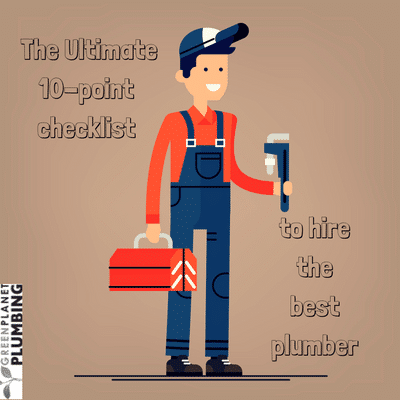
The need for plumbing services comes to us all at one time or another. You may want to install a new hot water system or a modern high-efficiency toilet – all meant to make things more luxurious in the ablutions department! You may want to install a new bathroom for the older children in the house or to deal with the increased number of visitors.
In most cases, you won’t be making a big change, but will need a plumber to do a repair job: a clogged toilet that the plunger cannot clear, a blocked or broken sewer, frozen pipes in winter, overflowing cisterns, or poor and inconsistent water pressure in the systems. It may be a leaking waste water system that continuously pours forth a slimy foul-smelling flow onto the passages and pavements.
Leaking or broken pipes mean large volumes of wasted water – a resource we are all trying to conserve. The monotonous drip sound of a dripping tap or faucet is an irritating nuisance when you want to get to sleep.
A plumber should be sought long before the problem becomes more than a nuisance in the house. But it is our natural tendency to avoid put these things off until the last minute. We do not fix it until it is really broken!
What you need now is an expert with the know-how and the right tools to do the job. Attempting a do-it-yourself solution will only make a bad situation worse. The big question arises: how to get the best plumber. You need the work done efficiently and expertly, so you want the best man for the job.
Here is a ten-point checklist to consider when hiring an expert plumber:
- Get a reputable plumber or company with proven credentials. You may get people you know – friends, relatives or workmates – to recommend one to you. You can also get invaluable advice from other professionals you have worked with such as electricians. If you prefer the yellow pages, be sure to subject your candidate to a thorough scrutiny.
- Get quotes from several candidates and do a comparative scrutiny. Consider what you need fixed vis-a-vis the cost. Higher quotes may mean one wants to fleece you, while a low bid may indicate a shoddy job or hidden extra costs. Find out exactly what the plumber will do and how much it will cost. Find out how much is the cost for labour, materials and any contingencies.
- Ask to see a valid trade license to prove that the plumber is qualified and allowed by law to practice. You are required by law to use a licensed plumber, and you do not want to risk an unlicensed plumber, no matter how low they offer to do the job for.
- Get a plumber with insurance cover. This will cover any damage to property, yours or the neighbours’. And workman’s compensation will ensure the plumber is covered against injuries.
- Ask for references and, if possible, contact them to get more details of the person you want to hire – the surer you get now, the less sorry you will get later!
- Find out the work experience of the plumber, for how long has he been in business. Good plumbers last long while poor workmanship fizzles out sooner than later.
- The plumber should be willing to give a compliance certificate after the job is done and a guarantee for his workmanship over a respectable period of time – not less than 6 months or so.
- Avoid a plumber who gives quotations and costs without physically inspecting the work. He will have no idea of what needs to be done and the materials needed. The final cost may skyrocket later.
- A plumber who asks for payment upfront cannot be trusted, he might take your money and just disappear. On a big job, milestone payments are preferable after particular tasks are completed.
- After you have picked out your plumber, get a written contract, signed and dated. Keep your copy in case you need it later. Ensure it contains all the pertinent details and no ambiguities. Do not accept a verbal contract – you cannot hold somebody down to it!
With these steps taken care of, you are good to go!

